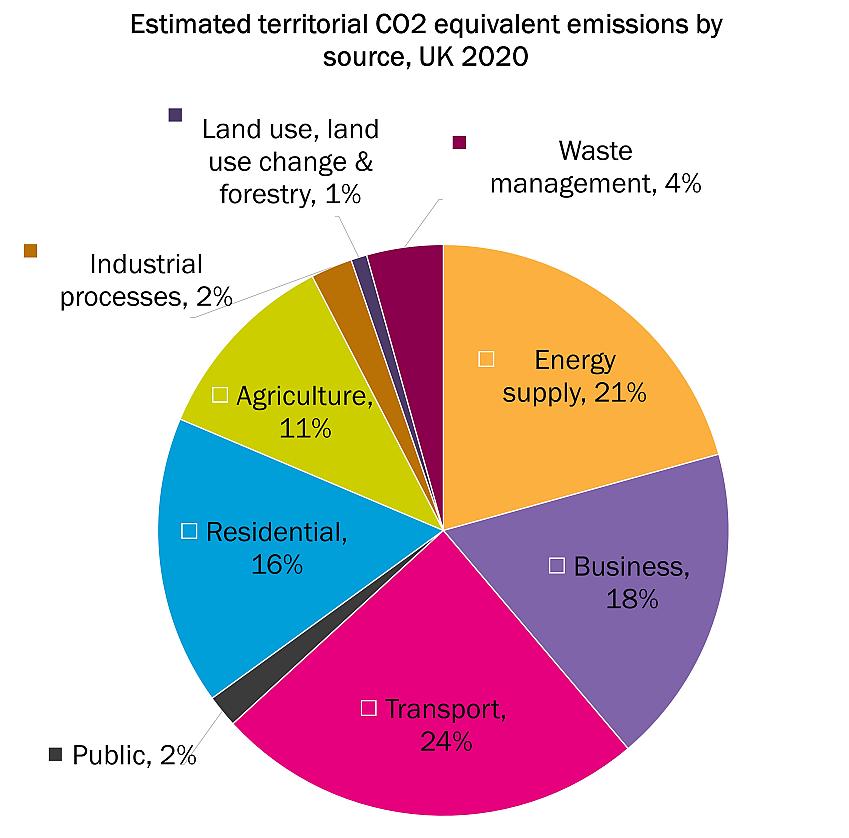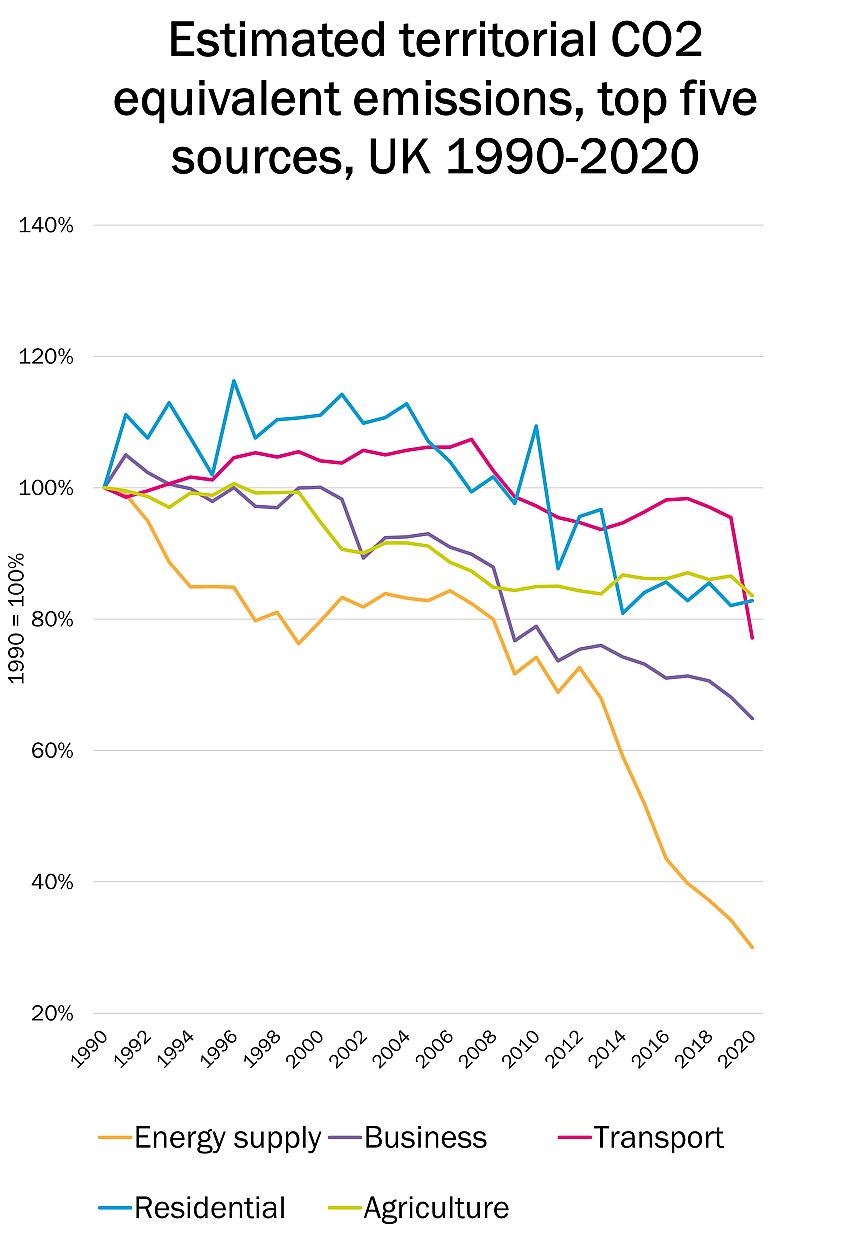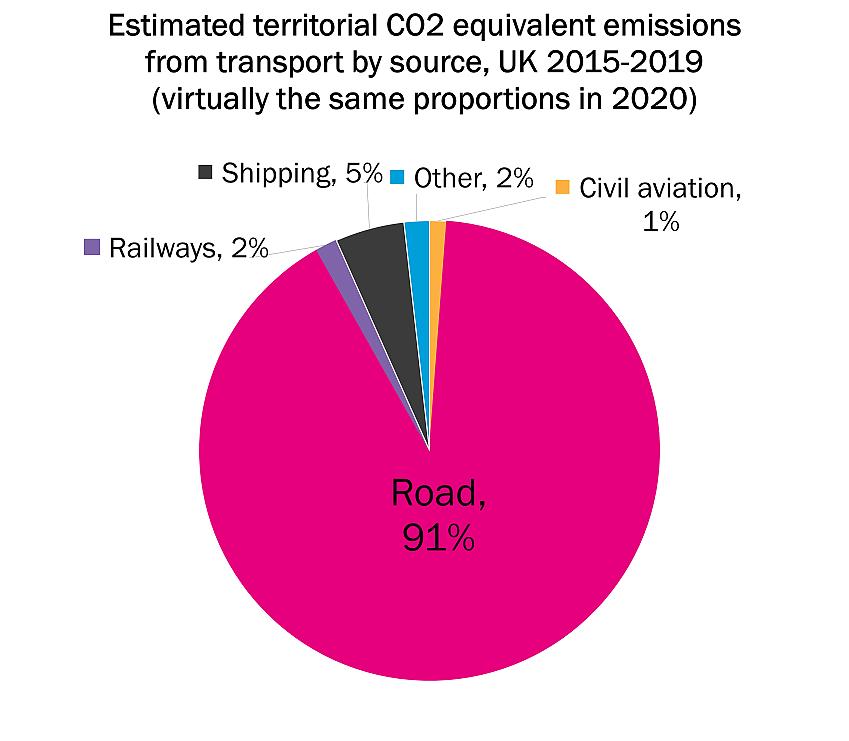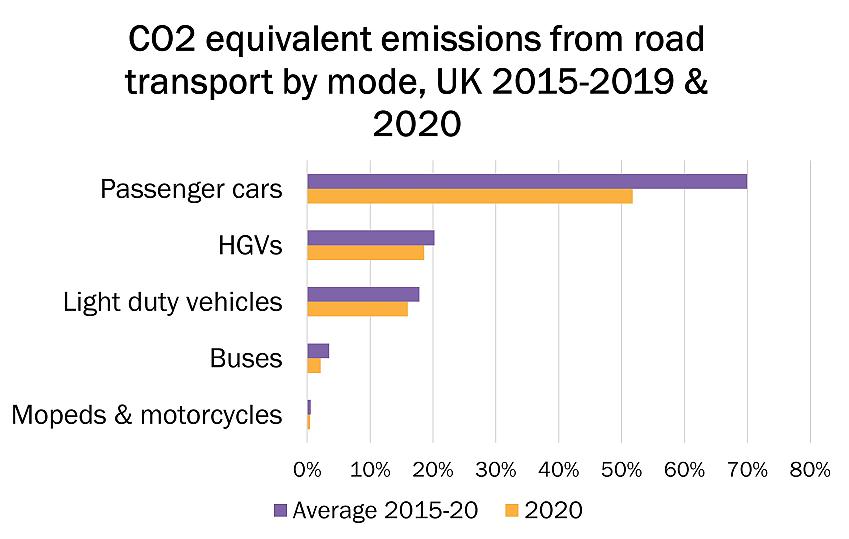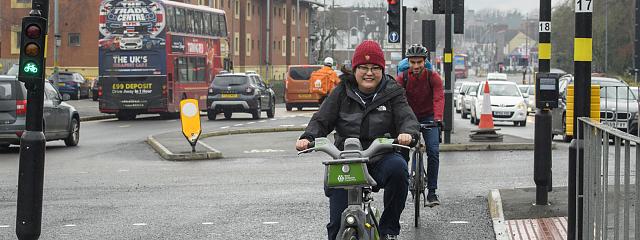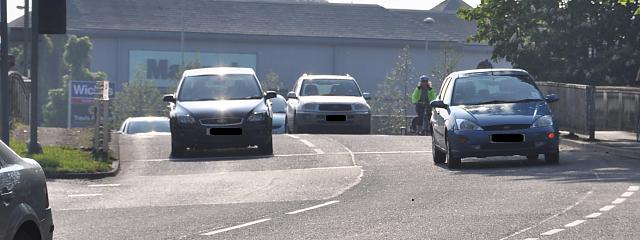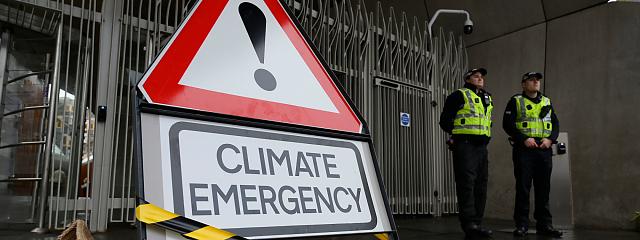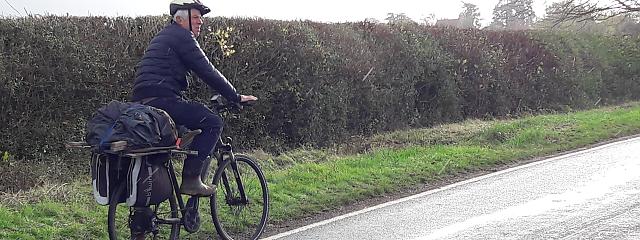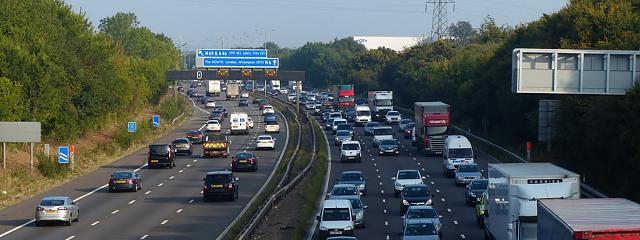
The case for cycling: tackling climate change
The case for cycling: tackling climate change
Cycling is one of the simplest lifestyle choices that most individuals can make to reduce their carbon footprint, and it offers huge benefits for health, the economy, air quality and neighbourhoods too.
Climate change: the need for action
Climate change isn’t a distant threat – it’s already happening, humans continue to cause it and it’s threatening the natural environment that cyclists treasure.
We’re constantly warned of worse to come:
- As the Intergovernmental Panel on Climate Change (IPCC) stated in its Sixth Assessment Report (2021): “It is unequivocal that human activities have heated our climate. Recent changes are rapid, intensifying, and unprecedented over centuries to thousands of years. With each additional increment of warming, these changes will become larger, resulting in long-lasting, irreversible implications, in particular for sea level rise.”
- Globally, atmospheric emissions of the greenhouse gas CO2 have been rising year-on-year for at least the last six decades: for every million molecules of dry air, there were about 316 molecules of this gas in 1958, but this figure stood at 416 in 2021.
- Experts reckon that even the Paris Agreement goal of limiting warming to well below 2°C and preferably 1.5°C “…is not safe as 1.5°C and above risks crossing multiple tipping points”. A tipping point, they explain, is when self-perpetuating changes may lead to abrupt, irreversible and dangerous impacts with serious implications for humanity.
The need for action couldn’t be more urgent, and de-carbonising transport in the UK is a crucial step.
Greenhouse emissions from transport in the UK
According to statistics from The Department for Business, Energy & Industrial Strategy (BEIS):
- Transport has long been a major source of greenhouse gas (GHG) emissions in the UK, but it is now the sector that emits the most: 24% in 2020, due almost entirely to CO2. In 2019, this figure stood at 27%, and the average for 2015-19 is around 26%.
- Historically, transport came second to the energy supply sector but, with the growth of renewables for electricity generation, this is no longer the case.
- Despite 2020’s COVID-19 lockdown resulting in an “unusually large fall in emissions” from transport, the sector still topped the list of sources of GHG.
- Provisional figures for 2021 suggest that GHG from transport are on the rise again.
Compared to the other top-emitting sectors, transport has made the least progress on reductions since 1990 (with the exception of 2020, an unusual year):
Road transport accounts for the bulk of CO2 emissions from the transport sector – a massive 91%:
Of all road transport, passenger cars emit by far the most CO2 – 70% for 2015-19 and, despite lockdown, over half in 2020:
- According to the Department for Transport’s (DfT) annual transport and environment statistics: “… new car fuel efficiency has been decreasing since 2016 after a period of growth. This is largely driven by an increase in the proportion of SUVs and other large vehicles amongst new car registrations.” This is not good news for the environment.
UK legislation, targets and progress
The UK as a whole, Wales and Northern Ireland have all set legally binding greenhouse gas emissions targets for net zero by 2050; while Scotland has opted for net zero by 2045.
Further reading: for considerably more detail on net zero targets and progress towards them, see the Climate Change Committee’s website. This committee is the UK’s independent adviser on tackling climate change, offering an independent assessment of the UK’s Net Zero Strategy; details of interim targets & carbon budgets; the differences in each nation’s strategies; enabling policies; and expert recommendations.
Cycling and CO2
Apart from walking, cycling is about the most climate-friendly type of transport around and more of it would help reduce emissions:
- The National Travel Survey for England (Table NTS0308a) suggests that, over the last few years, well over half (57.5%) of the trips made per person as a car/van driver were under five miles. Many people could make such journeys by cycle or, if they feel they need a boost, by e-bike, instead.
- A 2020 study based on data gathered in seven European cities including London concluded:
- Cyclists had 84% lower lifecycle CO2 emissions from all daily travel than non-cyclists.
- Lifecycle CO2 emissions decreased by -14% […] per additional cycling trip and decreased by -62% […] for each avoided car trip.
- An average person who shifted from car to bike decreased lifecycle CO2 emissions by 3.2 […] kgCO2/day, and using a bike as the ‘main method of travel’ gave 7.1 […] kgCO2/day lower lifecycle CO2 emissions than mainly using a car or van.
- A 2019 academic study into replacing short car trips with walking and cycling said: “We found significant potential of active travel to substitute short car trips, with sizeable impacts on carbon emissions from personal travel. Half of all car trips were less than 3 miles long. Taking into account individual travel patterns and constraints, walking or cycling could realistically substitute for 41% of short car trips, saving nearly 5% of CO2e emissions from car travel.”
- Data produced for the DfT-funded Propensity to Cycle Tool project suggested in 2017 that, if people in England became as likely to cycle as people in the Netherlands, English authorities could reduce CO2 outputs by over 1,500 tonnes a year on average. (This is based on a ‘Go Dutch’ scenario, which calculated that there would be two million fewer car driving commuters).
- A 2015 report, which compared business-as-usual with ‘High Shift’ scenarios (both with and without a strong cycling component), concluded that: adopting positive policies and investing in cycling and e-cycling worldwide could dramatically increase these modes’ share of urban kms travelled from 6% to 11% in 2030 and 14% in 2050; and that this, in turn, could cut CO2 emissions from the entirety of urban transport by about 7% by 2030, and nearly 11% in 2050 (compared to a High Shift scenario without a strong cycling component).
Attitudes and awareness
According to the National Travel Attitudes Survey (England, Table NTAS201e):
- More than three-quarters (76%) of respondents agreed that “for the sake of the environment, everyone should reduce how much they use their cars”. Only 9% disagreed.
- Two-fifths of respondents said they were willing to reduce the amount they travelled by car to help reduce the impact of climate change (23% neither agreed nor disagreed, 26% disagreed and 12% didn’t travel by car anyway).
- More people agreed than disagreed that “many of the journeys of less than two miles that I now make by car I could just as easily cycle, if I had a bike” – 37% compared to 31%.
Government policy
It’s vital that both national and local government capitalise on the high level of support for reducing car dependency for the sake of the environment (see above) and not only make solid commitments to de-carbonise transport, but also deliver on them.
In our view, this does not mean relying on ‘technofixes’ such as replacing petrol and diesel cars with electric ones – for a whole host of reasons, including road safety, we need fewer, not just newer cars, although we certainly want to see e-bikes and e-cargo cycles proliferate.
The following are some of the main mechanisms that government could employ to tackle greenhouse gas emissions from road transport and, at the same time, encourage and enable zero-carbon travel instead:
- Evidence-based targets to halt and reverse the growth of motorised road traffic, at a rate consistent with achieving net zero, supported by the funding commitments that these targets will require.
- Fuel duty: this is an important policy lever, but the UK Government froze fuel duty every year since 2011 and cut it by 5p per litre from 2022-23. From a climate change perspective, however, this money could have been much better spent, as a report commissioned by Cycling UK concluded: “The ‘better spending’ of £2.4bn in walking and cycling infrastructure would generate an estimated 68 billion zero-carbon walking and cycling kilometres during a 35-year infrastructure lifespan compared to the 27 billion high-carbon kilometres theoretically financed by the 2022-23 fuel duty relief. In conjunction with not spending on high carbon fuel relief subsidies, the modal shift enabled through £2.4bn investment in world-class walking and cycling infrastructure would deliver an estimated 57.4 MtonC02e in carbon reduction – this is equivalent to 1.5 times the annual carbon footprint of aviation in the UK.”
- Road pricing measures to reduce demand for car travel, investing the proceeds in active, health and sustainable alternatives.
- Workplace parking levies: Nottingham City Council, for example, has applied a workplace parking levy since 2012, successfully restraining car traffic.
- Transport appraisal: most guidance on appraising proposed transport schemes has long been criticised for undervaluing active travel schemes. Generally speaking, official guidance has improved over the years (and, mostly, continues to evolve positively), but it is still flawed. More on this in our briefing on the economy.
- Planning system: all too often, new developments cater for car use at the expense of providing properly for active travel. This needs to change, and it should be easier to challenge and reject a planning application on grounds of its impact on greenhouse gas emissions.
Note that, while fuel duty is set by the UK Government, transport appraisal guidance and planning policy in England, Wales, Scotland and Northern Ireland differs.
Further reading: Cycling UK advocated the measures listed above, plus others, in our comprehensive submission to Department for Transport’s consultation on decarbonising transport, and our response to the final plan which appeared in July 2021.
Voluntary initiatives
- UK100 is a network of local government leaders seeking to devise and implement plans for the transition to clean energy that are ambitious, cost-effective and take the public and business with them. It supports decision-makers in UK towns, cities and counties in their transition to Net Zero.
- UK Health Alliance on Climate Change “brings together health professionals to advocate for just responses to the climate and ecological crisis, promote the health benefits that flow from those responses, and empower members and health professionals to make changes in their professional and personal lives to respond to the crisis”.
- Climate Northern Ireland is an “intersectoral network devoted to increasing understanding of climate change impacts and risks within Northern Ireland and promoting the adaptation actions necessary to address these.” The Steering Group is composed of organisations from across central and local government, the business community, academic community and the voluntary sector.
- Climate Change Coalition is a large coalition dedicated to action against climate change in the UK, with sister organisations in Wales and Scotland.
*Please do get in touch if you know of any other voluntary initiative that we should list: campaigns@cyclinguk.org






